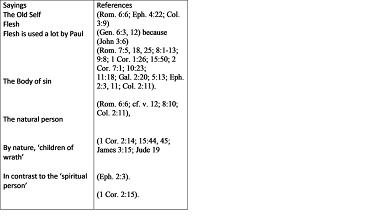Is The Root of Our Destruction the End or is there Hope?
14 th 12 2020 As we have seen Herman Bavinck the master theologian takes us to look at the human situation after the fall but before conversion. This person is spoken of as the ‘natural man’. Spiritual death never means according to Bavinck ‘nonbeing’. God created man gave him a soul and a spirit and they can do all the things anyone can do. The problem however is that the relationship with God has been broken. This cannot be fixed by man and no one can fix it themselves. We are annihilated from God for all eternity and we cannot save ourselves. Every facet of the person has been affected by the Fall and Bavinck gives many scripture references to show this. I went for my long walk today and I was pondering about the situation of the ‘natural man’ who finds himself in the predicament. One may argue that he/she is not in this predicament because he can do what he wants. I would say that the world blinds this man/ woman by giving them the selfish desires of
